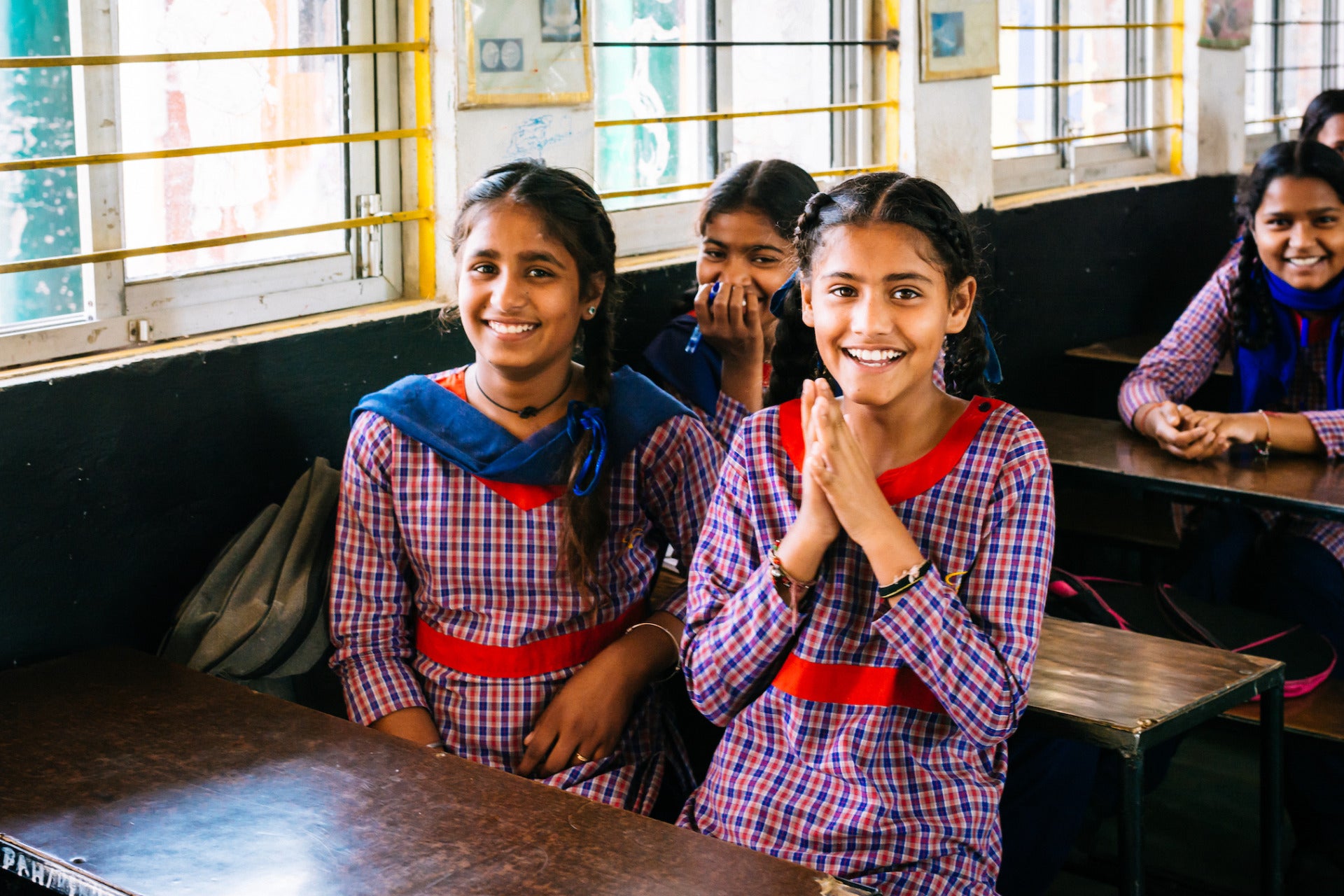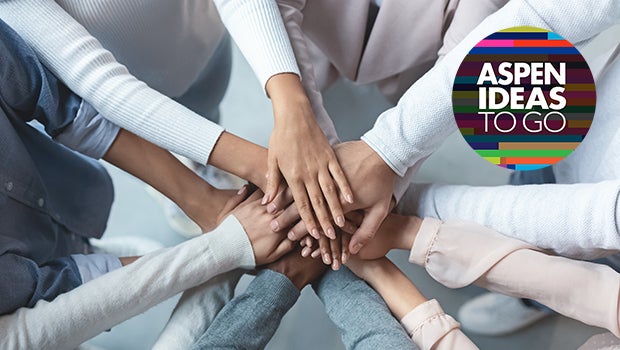June 28 is the International LGBTQ+ Pride Day. Begun in 1970, the day marks the anniversary of the Stonewall Riots.
In New York City on June 28, 1968, police violently raided a gay bar in the Greenwich Village neighborhood of Manhattan. Protests erupted in response, marking the start of the gay liberation movement. Today, the month of June is celebrated as Pride Month, a month to celebrate, uplift, and recognize the rights of LGBTQ+ people.
The Universal Declaration of Human Rights states that all people are “born free and equal in dignity and rights.” In 2016, the United Nations approved the position of a UN Independent Expert on sexual orientation and gender identity, recognizing the importance of protecting against violence and discrimination based on sexual orientation and gender identity.
Protections and rights for LGBTQ+ individuals are upheld at the highest level of international law, yet many people still face high levels of violence and discrimination.
In the United States, 560 anti-trans bills have been introduced in 49 states; 83 bills have passed state legislatures and 79 have been signed into law.
In Uganda, President Museveni signed one of the world’s most restrictive anti-homosexuality bills in May 2023, severely curtailing the safety and freedom of Uganda’s LGBTQ+ community. Similar legislation has been proposed in Kenya.
There is no coincidence between the number of anti-trans and anti-gay bills being introduced in the United States and the passage of the anti-homosexuality bill in Uganda. A network of conservative American religious organizations have supported both the United States anti-trans bills as well as the Ugandan anti-homosexuality bill. Alliance Defending Freedom has been named by the Southern Poverty Law Center and Axios as a driving force behind anti-trans and anti-gender affirming care in the United States. Open Democracy has also named Alliance Defending Freedom among a list of influential American Christian organizations that have given money to African countries to support anti-gay legislation.
The Fellowship Foundation, an influential American conservative faith-based organization, has given more than $34 million in funding to African countries, spending more than $20 million in Uganda alone, and is noted as a key player in the development of Uganda’s anti-homosexuality bill.
We, at the Aspen Global Innovators New Voices Fellowship, understand the intersectional importance of LGBTQ+ rights in conversations around health and well-being. We uplift the voices and opinions of our Fellows who work to uphold the rights and dignity of all people. We acknowledge the outsized influence that American religious organizations have in the LGBTQ+ politics in other countries, particularly Africa.
On this International LGBTQ+ Pride Day, we encourage you to learn more about the LGBTQ+ activism of New Voices Fellows—as well as other noteworthy publications from the Aspen Institute—by exploring the list of resources below.
- Uganda, UN Experts Condemn Egregious Anti-LGBT Legislation, Dr. Tlaleng Mofokeng (United Nations)
2018 New Voices Fellow and UN Special Rapporteur on the Right to Health, Dr. Tlaleng Mofokeng joined other UN experts earlier this month to speak out about the new Ugandan legislation making homosexuality punishable by death. Dr. Tlaleng, along with the other experts, says “the imposition of the death penalty for same-sex intimacy—including so-called ‘serial homosexualitiy’— is an egregious violation of human rights.”
- International Human Rights Law as a Tool to Stop Rising Homophobia in Africa, Steff Musho (All Africa)
2020 New Voices Fellow Steff Musho writes, “The criminalization of gay rights in Africa is in fact another detrimental product of colonialism on the continent. Additionally, religious dogma is often advanced to curtail human rights. Despite whichever faith we subscribe to, none is underpinned on hate and intolerance.”
- Uganda Anti-Homosexuality Bill: Life in Prison for Saying You’re Gay, Clare Byarugaba (BBC)
2018 Fellow Clare Byarugaba is a gay activist in Uganda. She’s been interviewed by BBC and CNN on the passage of the anti-homosexuality bill. Speaking to BBC, she said “they are trying to drum up anti-gay rhetoric to divert attention from really what is important to Ugandans in general. There is no reason why you should have a bill that criminalizes individuals that are having consensual same-sex aadult relationships.”
- Kenyan LGBTIQ Persons Are Not Asking for Any Special Treatment, Dr. Stellah Bosire (The Standard)
2018 Fellow Dr. Stellah Bosire is the Co-Executive for UHAI – The East African Sexual Health and Rights Initiative, Africa’s first indigenous activist fund for and by sexual and gender minorities. She wrote a memorial piece in honor of a lesbian woman who was murdered in 2022. Dr. Bosire says, “the existence of unjust, archaic and colonial laws that criminalise same-sex relationships despite these sections being blatantly unconstitutional, fuels violence as it perpetuates negative public discourse and behaviours.”
- Counting Queers, Egerton Neto (Project Syndicate)
Egerton Neto is a LGBTQ+ activist and a political scientist and DemTech program manager at the Oxford Internet Institute. Last year, Egerton wrote an article for Project Syndicate highlighting the importance of including queer people in the Brazilian census. Egerton wrote, “politicians must understand that any national census or survey that does not include the LGBTQ+ community will not accurately represent their citizenry. Another decade without data would mean another decade without adequate policies, perpetuating the historical injustices that have kept our community poor, vulnerable, and forgotten.”
- 10 Amazing African LGBTQ+ Activists You Need to Know, Bisi Alimi (Global Citizen)
2014 New Voices Fellow and LGBTQ+ activist, Bisi Alimi was recognized in a 2021 Global Citizen article as one of the top ten African LGBTQ+ activists.
- Advancing LGBTQ+ People in STEM Careers, Aspen Institute Science and Society
Aaron Mertz and colleagues with the Aspen Institute Science and Society program released a report earlier this month to explore some of the barriers facing LGBTQ+ including in STEM around the world. The report includes action items that STEM organizations and institutions can take to protect the rights of LGBTQ+ people in STEM.
The Aspen Global Innovators New Voices Fellowship uses communications, advocacy and storytelling training to equip experts and advocates from countries in Africa, Asia and Latin America with skills to change public opinion and shift public policy.

